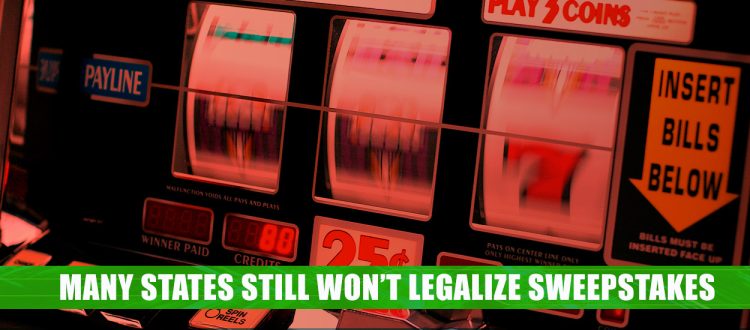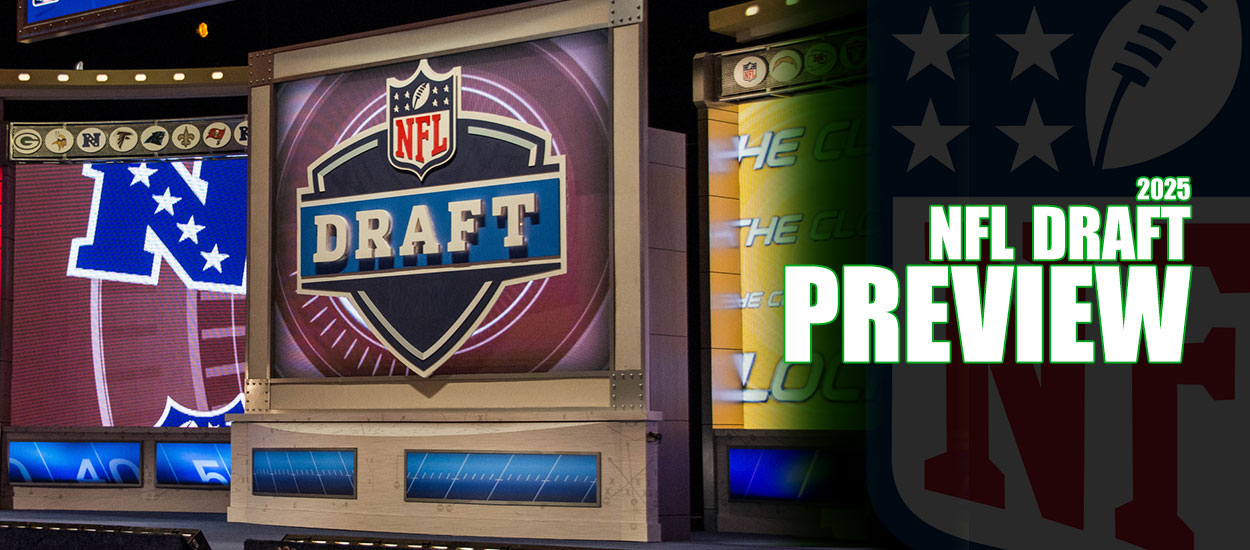In recent weeks, multiple states have either proposed or enacted laws to prohibit Sweepstakes Casinos, with Connecticut being the most recent. The Connecticut Senate approved a bill with a unanimous 22-0 vote, which was introduced in February, designating the operation of a sweepstakes casino as a class D felony. Prior to this, Mississippi and Maryland had already put forward similar legislation to outlaw sweepstakes casinos, while New York and New Jersey have expressed intentions to declare them illegal as well. The only states where Sweepstakes Casinos are explicitly forbidden are Idaho and Washington, both of which have enacted laws that prohibit any form of online gambling.
For individuals who aren’t acquainted with Sweepstakes Casinos, these platforms—whether websites or apps—provide slot machines and table games akin to those found in traditional or online casinos, but they ostensibly lack any financial reward. . . or at least that is the impression these sites aim to convey. Upon registration, users receive Gold Coins, a type of virtual currency, and any potential winnings are awarded solely as credits that hold no real-world value.
 If it were simply left as is, it wouldn’t pose a problem. However, these platforms also provide Sweeps Coins, which can be traded for cash or various rewards. These coins can be earned through registration at the casino, daily incentives, promotions on social media, mail-in offers, referrals, and bonuses that are frequently linked to purchases of gold coins. For instance, a player might receive 500 Gold coins along with 50 Sweeps coins after making a $50 deposit. Once players accumulate a sufficient number of Sweeps coins, they can convert them into cash or gift cards, leading many states to deem this practice illegal. Although Sweeps coins cannot be bought outright, it’s evident that the majority of players pursue different avenues mainly to acquire Sweeps Coins for betting at the casino, rendering the gold coins insignificant. This scenario should not come as a shock to online casino players who engage in demo mode; after hitting a significant jackpot, they often express regret for not wagering real money.
If it were simply left as is, it wouldn’t pose a problem. However, these platforms also provide Sweeps Coins, which can be traded for cash or various rewards. These coins can be earned through registration at the casino, daily incentives, promotions on social media, mail-in offers, referrals, and bonuses that are frequently linked to purchases of gold coins. For instance, a player might receive 500 Gold coins along with 50 Sweeps coins after making a $50 deposit. Once players accumulate a sufficient number of Sweeps coins, they can convert them into cash or gift cards, leading many states to deem this practice illegal. Although Sweeps coins cannot be bought outright, it’s evident that the majority of players pursue different avenues mainly to acquire Sweeps Coins for betting at the casino, rendering the gold coins insignificant. This scenario should not come as a shock to online casino players who engage in demo mode; after hitting a significant jackpot, they often express regret for not wagering real money.
Sweepstakes Casinos maintain that they are operating within legal boundaries since there is no obligation to make a purchase. They claim that most users engage with Gold Coins and do not spend any money on the sites for Sweeps Coins. According to them, the primary motivation for players is the enjoyment of the game and its visuals, rather than the potential for financial gain. Additionally, they emphasize that due to the absence of a purchase requirement, contests are deemed legal in nearly all states, provided there is a way to win prizes without any purchase. They cite examples such as the McDonald’s Monopoly promotion, where participants can collect Monopoly pieces either by buying food or beverages, or by sending in a specific ballot to McDonald’s to receive pieces by mail without needing to make a purchase.
It’s clear that the potential winnings from Sweepstakes Casinos are modest. However, their rising popularity can be attributed to the fact that only seven states have authorized and regulated online casinos at this time. Among these states, New Jersey and Delaware were the pioneers, legalizing online casinos in 2013, followed by Pennsylvania in 2017 with its iGaming legislation. West Virginia and Michigan joined the ranks in 2019, while Connecticut approved iGaming in 2021. Just this month, Rhode Island has legalized online casino betting.
The inquiry that needs to be posed is what the reason for this might be?
There are Online Casinos in just 7 States
Up until 2011, all types of online gambling were considered illegal due to the 1961 Wire Act, which a court interpreted in the early 2000s as applicable to all communication forms and every betting type. However, in 2011, the Department of Justice under President Barack Obama released a statement asserting that the Wire Act was relevant only to sports betting and contests, thereby legalizing all other forms of online gambling. Additionally, the opinion clarified that the UIGEA, enacted in 2006, did not impact the legality of online gambling since it did not prohibit any wagering confined to a single state. Despite this, only New Jersey and Delaware took steps to legalize online casinos following the ruling.
It wasn’t until the Supreme Court abolished PASPA in 2017 that various states began to explore the possibility of legalizing online casino gambling alongside sports betting. However, more than seven years following the repeal of PASPA, merely 7 states have taken the initiative to provide online casino gambling, while 32 states have embraced online sports betting. Ironically, Delaware does not participate in this trend, as they mandate that sports bets must be placed in person at racetracks.
I had a conversation with a gambling expert from New Jersey regarding his thoughts on the lack of legalization of online casinos in more states. He attributed this situation to factors such as “ignorance, greed, and stubbornness.”
“Throughout history, states have regarded casinos as significant sources of revenue and attractions for tourists, especially those resembling resort-style establishments. Consequently, when online casinos emerged, there was a widespread concern that they would diminish the income from physical casinos, prompting states to take measures to prevent this scenario. A notable instance occurred in New Jersey, where Governor Christie engaged in debates with fellow lawmakers regarding the legalization of online gambling. He believed that the introduction of online casinos would deter visitors from coming to Atlantic City. Ultimately, however, the arguments presented by other Assembly members prevailed, leading to the legalization of online gaming under certain conditions. Christie later conceded his mistake, as the anticipated decline in Atlantic City tourism did not materialize. In fact, many individuals returned to the local casinos after being drawn in by online platforms like BetCaesars and Borgata Online. Furthermore, during the COVID-19 pandemic, New Jersey managed to avoid the severe downturn experienced by other states without online gambling options. While casinos nationwide were compelled to shut down for extended periods, leading to significant revenue losses, New Jersey’s online gaming sector thrived, keeping the state’s revenues relatively stable as individuals sought entertainment through online casinos. The online gambling revenue for New Jersey reached unprecedented figures in 2020 and 2021. Similarly, Pennsylvania experienced a surge in interest for online casino wagering after its launch just before the pandemic, yet the state’s physical casinos largely remained unaffected except during the closure periods.
It became clear that land-based casinos and online casinos operate in entirely different realms; rather than being rivals, they actually enhance one another’s offerings. Michigan and Connecticut recognized this relationship, yet numerous conservative states remained resistant, clinging to the belief that online casinos not only undermined the revenue of their physical counterparts, including racetracks, but also posed a social threat by facilitating access for underage and problem gamblers. They argued that the online environment was less secure, arguing that internet monitoring couldn’t match the efficacy of on-site ID checks and surveillance cameras that could identify those on self-exclusion lists. However, this perspective has been proven incorrect. Many legislators in conservative states were swayed by Sheldon Adelson’s vehement opposition and the absurdity of his RAWA campaign, which claimed that online gambling would erode American morals. They were hesitant to challenge the late casino magnate, whom they believed would help restore the GOP’s influence. What they did not realize was that Adelson’s primary concern regarding online casinos stemmed from his inability to market hotel stays, costly dining, and overpriced entertainment through them.
This leads us to their inflexibility. Lawmakers, especially in conservative states, have begun to realize that their worries are unfounded. Many of their objections to online gambling are not reflected in online sports betting, and in states where online casinos have been legalized, there is no significant loss of revenue from brick-and-mortar casinos, nor is there an increased risk of addiction or underage gambling associated with online betting. Still, they cling to the anxiety that everything could eventually collapse or they wish for federal legislation to be enacted that would universally legalize all types of online gambling across the nation, instead of on a state-by-state basis, at which point they would readily support it. Meanwhile, these states are experiencing significant financial losses while those with online casinos are thriving.
 Aside from Mississippi, Arkansas is the only red state showing signs of uncertainty, as it considers a dual measure that would legalize online casino betting while also prohibiting sweepstakes casinos. Meanwhile, New York is contemplating the introduction of online casinos as a potential leverage to appease sportsbooks, who are currently burdened by a hefty 51% tax.
Aside from Mississippi, Arkansas is the only red state showing signs of uncertainty, as it considers a dual measure that would legalize online casino betting while also prohibiting sweepstakes casinos. Meanwhile, New York is contemplating the introduction of online casinos as a potential leverage to appease sportsbooks, who are currently burdened by a hefty 51% tax.
Currently, Sweepstakes Casinos are making headlines as various states push for their prohibition, given that they offer a way to earn money through casino games. The motivations behind these bans vary among states. For states like Mississippi, New Jersey, and Connecticut, and likely Michigan soon, which have legalized casino gambling, the concern is that Sweepstakes Casinos pose a threat to the legitimate online casino market. These states believe that Sweepstakes Casinos should be required to obtain a license and pay taxes just like other gambling sites. Conversely, the remaining states advocating for bans maintain that online casino gambling is unethical, insisting that gamblers should engage in more socially acceptable betting methods such as lotteries, horse racing, sports betting, and traditional casinos. While this mindset seems irrational, I recall attending a conference where a speaker echoed the well-known Jon Kyl statement about children potentially misusing their parents’ credit cards to gamble irresponsibly. As long as this perspective endures, it appears unlikely that more states will embrace legal online casino gambling anytime soon.
Explore more of Hartley Henderson’s insights here at gamblersWORLD.
















